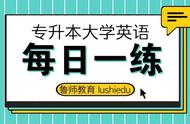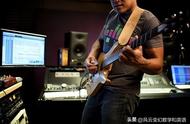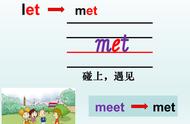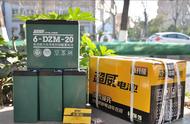句子成分是构句的一个单位,毫无疑问英语实词都可以充当一定的句子成分,但英语句子成分的特点是不仅词可以做句子成分,短语和句子也可以做句子成分,这就造成了成分中还可以有成分这一特点,也就是说英语句子成分是一种向内的层级结构,即成分中还可带成分,从句中还可以有从句,比如:Many teenagers are surprised to learn that when you exercise, your body produces some chemicals that make you feel relaxed and increase your ability to concentrate when you study.这个句子中的不定式to learn为状语,这个状语又带了一个宾语,而且是句子作为宾语,宾语从句里还有状语从句(when you exercise)和定语从句(that make you feel relaxed and increase your ability to concentrate)。
二、英语句子的七种基本成英语句子有七种基本成分分别为:主语、谓语、宾语、定语、状语、补语和表语。这七种成分中,主语、谓语、宾语、表语及补语为句子主干,定语、状语为分枝。汉语中没有表语,因为汉语中的名词和形容词是可以作谓语的,而在英语中是不可以的,英语中的名词和形容词只能跟在连系动词后作表语,构成系表结构相当于谓语。
1.主语:句子的主体,可以由名词、代词、非限定动词(过去分词除外)、相当于名词、代词的短语或从句(主语从句)来充当。
English is a language spoken all over the world.(名词)
I don’t like the way you speak. (代词)
To master a language is not as difficult as it is said.(非限定动词短语)
What he said made his friend unhappy.(从句)
2.谓语:主体的行为、动作或状态,由限定动词来充当。情态动词和助动词不能单独构成谓语,助动词必须和主动词一起构成复合谓语,情态动词要与不带“to”的不定式一起构成复合谓语。
The police finally found the missing boy.(单个动词作谓语)
I was doing my homework all day yesterday. (复合谓语)
You can’t expect the world the way you want. (复合谓语)
3.宾语:主体行为动作的对象或内容,可以由名词、代词、非限定动词(过去分词除外)、相当于名词、代词的短语或从句(宾语从句)来充当。
They are looking for a better way to cut down the cost. (名词短语)
Most children enjoy playing games. (非限定动词短语)
Can you tell me why you did not come to school yesterday? (从句)
4.定语:对句中的名词或代词起修饰或限定作用,由名词、形容词、非限定动词、短语或从句(定语从句)来充当。单个的词作定语一般置于被修饰的词的前面,短语和句子作定语往往置于被修饰的词的后面。
We have more boy students than girl students in our class. (名词)
Dolphin is one of the most beautiful creatures under water. (形容词)
A doctor from Beijing will be arriving tomorrow.(介词短语)
So far nobody has claimed the money discovered in the library.(过去分词短语)
I still remember the days when I lived in the countryside with my grandparents. (定语从句)
5.状语:对句子中的动词、形容词、副词乃至整个句子起修饰作用表明事物的状态或逻辑关系,可以由副词、非限定动词、短语或从句(状语从句)充当。英语状语位置灵活,状语所表达的关系复杂,可以表示动作发生的时间、地点、方式、原因、条件、结果、等关系,也可以表示让步、目的、伴随、比较等关系。
Sound travels much faster than an airplane but light travels even faster than sound. (修饰动词和副词)
She is extremely beautiful in this dress.(修饰形容词)
When I was young I used to read fairy tales.(修饰句子)
6.补语:对句中的宾语起补充说明作用,也叫宾语补语,可以由名词、代词、形容词、副词、非限定动词或短语来充当。
We made him captain of our football team. (名词)
The workers found it impossible to finish the project in two weeks.(形容词)
When she woke up at midnight she found the light still on. (副词)
Mary thought she hadn’t made the students understanding her clearly.(非限定动词)
7.表语:用来说明主语的性质或状态,可以由名词、代词、形容词、副词、非限定动词或短语及从句(表语从句)来充当。
Social net workings are available to all students in China today. (形容词)
A computer mouse is not a small animal that lives in buildings and open fields. (名词短语)
Seeing is believing. (非限定动词)
What she couldn’t understand was why fewer and fewer students showed interest in her lessons. (表语从句)
三、英语句子的主干成分句子成分的最终目的是要构成英语句子,英语句子不是成分的随意堆砌,需按照一定的结构来构成句子,就如砌房子一样需要有一个框架,英语句子的主干成分就是构成句子的框架成分。英语句子有五个基本框架模式,即所谓的五种基本句型。这五种结构之所以为基本结构,一它是因为它是英语语句子的主杆,二是因为英语所有的句子都是通过这五种基本结构变化而来的,因此掌握句子五种基本结构是分析和理解英语句子的基础。五种基本句型是以动词为核心展开的,我们把动词分为连系动词、不及物动词和及物动词三类,连系动词需带表语,不及物动词不能带宾语,及物动词可以带宾语,不同的及物动词带不同结构的宾语,有的及物动词带单个宾语,有的需带双宾语,还有的需带复合宾语。这三类动词可推导出五种基本句型,如:













